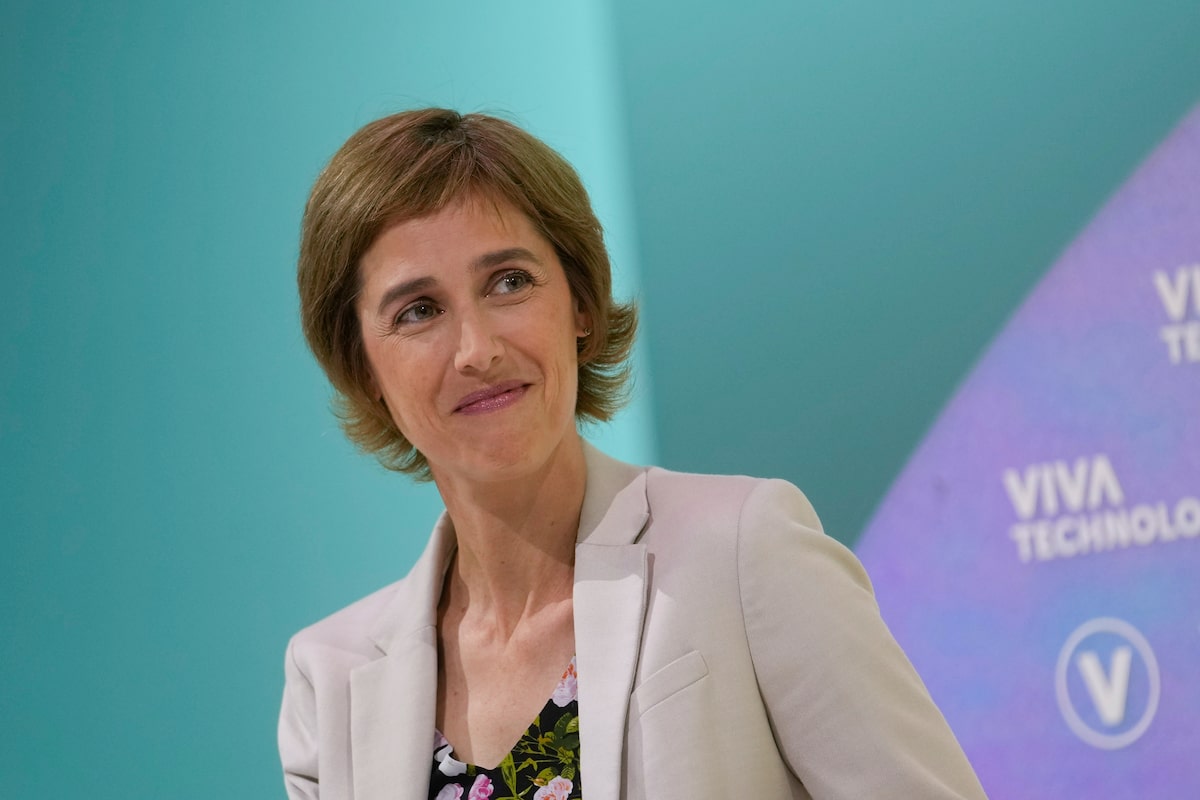Toronto-based AI company Cohere has hired former Meta executive Joelle Pineau and announced another round of fundraising.thibault camus/The Associated Press
Cohere Inc. has raised US$500-million and hired a key executive from Meta Platforms Inc. META-Q as it seeks to compete against its much larger rivals and secure customers in the frenzied market for artificial intelligence.
The funding announced by Cohere on Thursday values the Toronto-based AI company at US$6.8-billion.
Cohere has hired McGill University computer-science professor and former Meta executive Joelle Pineau as its chief AI officer. The appointment of Dr. Pineau, who left Meta in May, represents a coup in a fierce war for AI research talent.
Many of the investors in the latest financing have previously put money into Cohere, including Canadian funds Radical Ventures and Inovia Capital, both of which led the round.
Bell and Cohere partner to sell AI tools to governments, businesses
Shopify and Cohere execs urge tech talent to build in Canada
Other returning investors include AMD Ventures, Nvidia Corp., PSP Investments and Salesforce Ventures. The Healthcare of Ontario Pension Plan invested for the first time.
Cohere, founded in 2019, is differentiating itself in the AI race by training models and building products for businesses instead of consumers, and focusing on security and privacy.
This month, the company made its North platform available for wide release. The software can access a company’s internal data to draft documents and reports, and can be used to build AI agents to complete repetitive administrative tasks.
The company raised US$500-million just last year at a US$5.5-billion valuation. Rivals OpenAI and Anthropic, however, are reportedly worth hundreds of billions of dollars.
“I don’t spend a lot of time thinking about that,” Cohere co-founder Nick Frosst said Thursday. “I spend a lot more time thinking about the technology we’re building.”
The economics for Cohere are different than its competitors, he added.
OpenAI, Anthropic and others have consumer-facing chatbots that require large amounts of money to operate. Cohere’s business customers, in contrast, pay for their own computation costs or run models on their own infrastructure.
“We’re able to add a ton of value for their business, and also be a sustainable business model for us. Some of the consumer applications have a pretty hard time doing that,” Mr. Frosst said.
The company has a path to profitability, Mr. Frosst said, but he declined to offer specifics. Cohere has also hired Francois Chadwick, a former Uber Technologies Inc. executive, as its chief financial officer.
Dr. Pineau starts in September and will be based in Montreal, where Cohere recently announced plans to open an office and partnered with Mila, one of the country’s AI research hubs.
She will also oversee Cohere Labs, the research arm focused on core scientific issues related to the technology. (Sara Hooker, who previously headed the lab, announced her departure earlier this week.)
At Meta, Dr. Pineau led the Facebook parent company’s Fundamental AI Research lab, which worked on the open-source Llama large language models.
Her hiring in 2017 was part of a wave of Canadian AI talent getting snapped up by American tech firms, including Sanja Fidler, who leads Nvidia’s Toronto research lab.
Dr. Pineau’s departure from Meta in May coincided with a push from founder Mark Zuckerberg to spend hundreds of millions of dollars courting top researchers to join the company to pursue artificial general intelligence, or AGI, which refers to systems that are as smart as humans.
“This isn’t a vote of protest against AGI,” Dr. Pineau said Thursday. “I’m interested in real solutions, rather than a lot of talk and the hype.”
She received many job offers after leaving Meta, she said, and she chose Cohere because of its focus on responsible AI deployment and in order to be part of a smaller, more agile team.
Dr. Pineau suggested to La Presse in July that she was also not comfortable with the American tech industry’s shift to support U.S. President Donald Trump.
She was more circumspect on Thursday.
“I was at Meta for eight years or so through various political cycles,” she said. “It was a combination of just feeling like I was done with the cycle there, and looking for opportunities.”
She said there are several fundamental research problems she hopes to tackle at Cohere, including how to evaluate the performance of AI agents and how these tools interact with one another.

